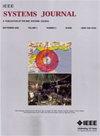Adaptive Reinforcement Learning for Fault-Tolerant Optimal Consensus Control of Nonlinear Canonical Multiagent Systems With Actuator Loss of Effectiveness
IF 4
3区 计算机科学
Q1 COMPUTER SCIENCE, INFORMATION SYSTEMS
引用次数: 0
Abstract
This article addresses the adaptive optimized consensus tracking control problem of nonlinear multiagent systems (MASs) via a reinforcement learning (RL) algorithm. Specifically, the nonlinear high-order MASs are formulated in a canonical form, with considerations for both actuator effectiveness loss and time-varying bias faults. First, neural networks (NNs) are utilized to approximate unknown nonlinear dynamics, and a state identifier and a fault estimator based on NNs are established, both of which are essential for evaluating state information and bias faults, respectively. Second, to achieve a high-order canonical dynamic consensus and enhance the efficiency of the consensus control strategy, a sliding-mode mechanism is employed to regulate tracking errors. Moreover, we develop an adaptive NN-based fault-tolerant optimal control method by integrating the sliding-mode mechanism with an actor–critic structured RL algorithm. It is proved that the outputs of the MASs precisely align with the desired reference signals, while ensuring the boundedness of all closed-loop signals. Finally, the proposed control methodology's effectiveness is validated through a simulation example.执行器失效情况下非线性典型多代理系统的容错优化共识控制的自适应强化学习
本文通过强化学习(RL)算法解决了非线性多代理系统(MAS)的自适应优化共识跟踪控制问题。具体来说,非线性高阶 MAS 采用典型形式,同时考虑了执行器效力损失和时变偏差故障。首先,利用神经网络(NN)来逼近未知的非线性动力学,并建立了基于 NN 的状态识别器和故障估计器,这两者分别对评估状态信息和偏差故障至关重要。其次,为了实现高阶典型动态共识并提高共识控制策略的效率,我们采用了滑模机制来调节跟踪误差。此外,我们还将滑模机制与行为批判结构化 RL 算法相结合,开发了一种基于 NN 的自适应容错优化控制方法。事实证明,MAS 的输出与所需的参考信号精确一致,同时确保所有闭环信号的有界性。最后,通过一个仿真实例验证了所提出的控制方法的有效性。
本文章由计算机程序翻译,如有差异,请以英文原文为准。
求助全文
约1分钟内获得全文
求助全文
来源期刊

IEEE Systems Journal
工程技术-电信学
CiteScore
9.80
自引率
6.80%
发文量
572
审稿时长
4.9 months
期刊介绍:
This publication provides a systems-level, focused forum for application-oriented manuscripts that address complex systems and system-of-systems of national and global significance. It intends to encourage and facilitate cooperation and interaction among IEEE Societies with systems-level and systems engineering interest, and to attract non-IEEE contributors and readers from around the globe. Our IEEE Systems Council job is to address issues in new ways that are not solvable in the domains of the existing IEEE or other societies or global organizations. These problems do not fit within traditional hierarchical boundaries. For example, disaster response such as that triggered by Hurricane Katrina, tsunamis, or current volcanic eruptions is not solvable by pure engineering solutions. We need to think about changing and enlarging the paradigm to include systems issues.
 求助内容:
求助内容: 应助结果提醒方式:
应助结果提醒方式:


